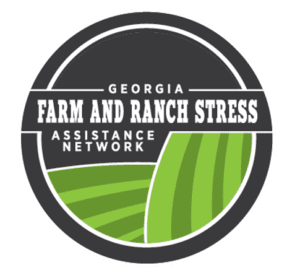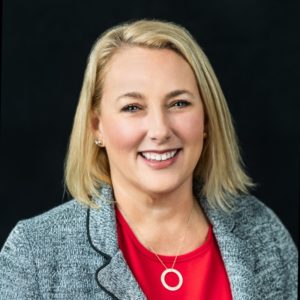Jan 1, 2023UGA helps farmers, rural communities deal with stress
From forces of nature to inflation, stressors have an outsized impact on farmers and families.
Producers depend on University of Georgia (UGA) Cooperative Extension agents for research-based advice to improve production practices. Now, UGA Extension and the university’s College of Agricultural and Environmental Sciences (CAES) faculty are working to provide important information and resources for helping farm communities under stress.


“It is no wonder that farmers and ranchers often rank high on the list of most dangerous and stressful professions and that rates of farmer suicide are far higher than the overall population of workers. However, farmers are also resilient.”
A multidisciplinary team from the UGA’s CAES, Cooperative Extension, School of Social Work and College of Family and Consumer Sciences (FACS) is working to help farmers handle the hard times through a number of projects, including the Farmer Stress and Suicide: Community Prevention and Intervention program, all under the umbrella of the Rural Georgia: Growing Stronger initiative.
Supported by interdisciplinary research pre-seed funding from the UGA Office of Research and the Office of the Provost, the team is led by Anna Scheyett, a professor in both the school of social work and the CAES Department of Agricultural Leadership, Education and Communication.
Scheyett, who has performed previous research on farmer stress and suicide rates, has been working with CAES and UGA Extension staff since 2019 to gather information from farming communities on their stressors, coping mechanisms and knowledge of resources available. Responses indicate that farmers and other members of rural communities know their primary stressors and that stress levels are high, however only about a third said they were confident about knowing what to do if someone they knew were under extreme stress or feeling suicidal.
Most of the primary stressors for farmers are those outside of their control — input prices, commodity prices, labor, weather — and respondents were most likely to depend on close personal relationships for support rather than professionals, Scheyett said.


“Farmers are very independent, very driven and very stoic. When we asked farmers and those who are farmer-associated who they trust — who they would talk to in times of stress — 97% said a spouse,” Scheyett said.
Similarly, respondents said they prefer to get their information on support and resources from sources they already trust. As a part of the prevention and intervention program, an initiative in UGA Extension’s Southwest District seeks to capitalize on events that are likely to draw the attendance of farmers and those living in rural areas, such as production meetings.
Held annually by Georgia Extension offices, production meetings are an opportunity for growers, producers and other members of the agricultural community to get the latest science-based recommendations from agents, earn required continuing education credits and network, usually over a shared meal.
UGA Extension agents value these opportunities to touch base with the community members they work with and to provide important information about research and resources available through UGA and federal, state and local organizations.
“Farmers get a folder of information from the Rural Georgia: Growing Stronger 

These resources were first shared at production meetings in Colquitt, Echols and Mitchell counties and the program has been expanded to Worth, Sumter and Calhoun counties.
The team is also engaged in Mental Health First Aid training with Extension agents to help them get comfortable with those conversations and helping farmers through the question, persuade, refer (QPR) model. Extension is creating resources for agents, such as a pocket guide on how to ask the right questions to gauge how producers and others in the agricultural sector — many of them neighbors and friends — are coping on a day-to-day basis.
“When something happens, like the freeze that affected the south Georgia blueberry crop this year, we are reminding agents not only to talk about the crop, but to ask farmers ‘How are you?’ ” Scheyett said. “We want to get the message out about stress and what could be done about it. We can’t change the weather or commodity prices or how much diesel is going to cost, but we can help you change the ways you respond to stress so it will not kill you.”
Andrea Scarrow, Southwest District director for UGA Extension, explained that the initiative began with the response to the devastation of Hurricane Michael in October 2018.
“Our agents are the ones rubbing shoulders with the farmers every day and who have that trust with them,” Scarrow said. “We are not counselors or mental health professionals, but we do have a role to play in encouraging and helping that farmer know there are people who can help and that there are resources for them out here.”


It was during that time that UGA Extension began working with Jennifer Dunn, formerly the behavioral health regional services administrator with the Georgia Department of Behavioral Health and Developmental Disabilities, now the first rural health agent for UGA Extension.
“Hurricane Michael was literally the perfect storm to bring this topic to the forefront. People who lost everything were making comments that people in their communities didn’t know how to respond to,” Dunn said, relaying an anecdote from a rural stress summit held a few weeks after Hurricane Michael. A county Extension agent was discussing commodity predictions for the next growing season when one of the farmers asked aloud, “What are the suicide predictions?”
“I asked the agent, ‘What did you say?’ He said everyone just laughed because it was uncomfortable,” Dunn said. “To me this showed that, even though people are still really uncomfortable about how we incorporate this kind of information in a setting where we’ve never talked about this before, folks are ready to talk about it.”
Dunn feels like her own personal connection to the farming community through her father, a longtime farmer and agricultural banker, lends added credibility to the information she provides at the meetings.
Dunn said tapping into the natural propensity of those living in rural communities to come to each other’s aid in times of crisis is an important quality to tie into all types of health.
“Mental health and physical health should not be separated the way they are because they are so interrelated,” she said. “When someone has breast cancer, you automatically bring them a casserole or pick their kids up from school or knit them a shawl. But if they are having a mental health crisis, do we take them a casserole or pick their kids up? We don’t. There are a lot of reasons for that, but we want to make mental health and physical health as parallel as possible.”
Future plans include expanding telehealth opportunities and creating peer-to-peer networks including farmers, retired farmers and other members of the agricultural community who can serve as resources within their own communities. Scheyett also started a website, Thriving on the Farm, offering tips and tools for managing stress and taking care in rural communities.
“Farmers are tech savvy these days. They use iPads and mobile devices to get reports from our specialists electronically, so we can use that to connect them to resources that may not be right there in the community,” Scarrow said. “We want to change the belief that there’s nowhere to turn into awareness that there is a wealth of resources for them to connect with.”
Source: Maria M. Lameiras, a UGA College of Agricultural and Environmental Sciences managing editor.















